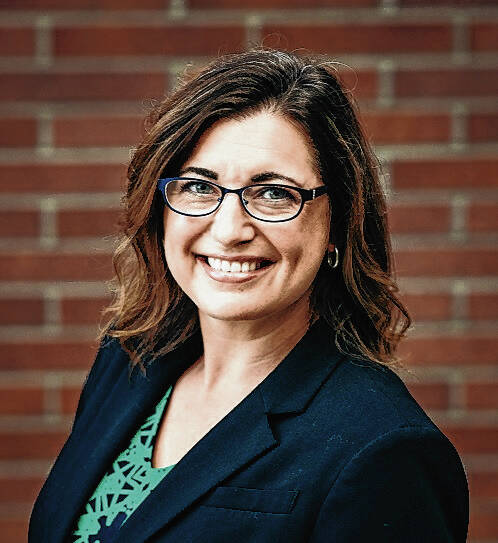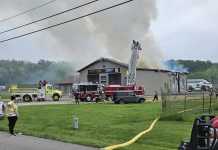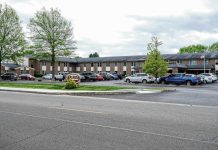An eight-member panel discussion originally designed to give residents an overview of law enforcement and judicial policies and procedures evolved into a lively conversation about race, minorities’ fear of police and youth in the court system.
The only glaring weakness in the event Tuesday at The Commons, as panelist and Pastor James Wood saw it, was the crowd: 22 people, and several of them directly affiliated with the topic, such as Superior Court 1 Judge James Worton. There were others in attendance with an indirect link, such as former Columbus police officer James Harris.
“The people who really need to be here aren’t here,” Wood said, referring to those who don’t understand how the legal system works yet sometimes complain about police or courts. Wood, one of eight panelists, represented the local African American Pastors Alliance. That group regularly meets with leaders from those involved in everything from schools to media to encourage fairness to minorities.
With the smaller attendance in mind, moderator and Bishop Johnnie Edwards, president of the organizing Columbus/Bartholomew County Area Chapter of the NAACP, said before the two-hour gathering finished that there would be another such discussion soon — and one which ideally would unfold where people more naturally gather.
Panelist Lindsey Holden-Kay, a candidate for Bartholomew County prosecutor, suggested that “it’s time for us as leaders in this community or as elected officials to go to them. Maybe it’s time for us to go to a predominantly African American church or an NAACP meeting or some event.”
In the past, even those attempts sometimes have yielded smaller crowds. On Jan. 20, 2020, when a somewhat similar gathering dealing with challenges of Black residents unfolded on the evening of Martin Luther King Jr. Day at Calvary Community Church, an assembly with a mostly Black membership, fewer than 20 people attended.
The Juvenile Detention Alternative Initiative program sponsored the latest discussion with the NAACP.
Edwards told three police panelists Tuesday that local African Americans’ fears of police are not necessarily because officers have done anything wrong. But several panelists mentioned throughout the evening that law enforcement abuse of minorities nationally nearly always resonates and reverberates in some way locally. And Edwards added that the NAACP has been told that some members of the local LGBTQ population do not attend the Columbus Pride Festival “because they are afraid of law enforcement and believe that law enforcement has something against them.”
Panelist and Bartholomew County Sheriff Matt Myers said he has nothing at all against any residents, and added that he has gay members in his circle of relatives and loves them as he does anyone else.
Panelist Capt. Ruben Marté of the Indiana State Police said his years of law enforcement experience have taught him that purposely and regularly meeting with minorities in the high schools and universities slowly and gradually replaces mistrust of police with a real and human relationship. Marté said he has seen the same positive relationship develop when he dispatched white officers to work crowd control detail at the annual Black Expo in Indianapolis — and the officers then grew excited about working the event the next year and the next because they built a connection and “had a good time with people who did not look like them,” as he put it.
“I do know that that kind of outreach works when we directly engage one another,” Marté said. “… But it just takes some time to de-escalate fears (of police).”
Columbus Police Department Chief Michael Richardson acknowledged that he was aware that some Black residents fear police.
“Too many times in some communities, minorities have been promised things by people such as politicians, and those promises sometimes have been just empty words,” Richardson said. “Or they have been lied to.”
He added that events such as the local Juneteenth festival coming up June 18 become a significant time for his officers to show sincere interest in Black citizens’ interests and activities.





